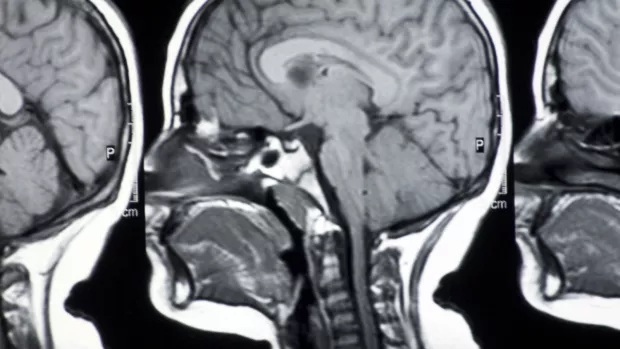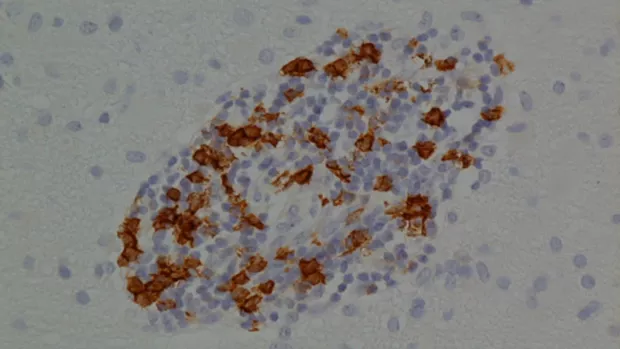
Progressive MS: a new perspective
We now have around a dozen disease modifying therapies (DMTs) licensed for people with relapsing MS. These treatments mostly work by stopping rogue immune cells from crossing from the blood into the brain and attacking myelin.
Unfortunately, DMTs haven’t been as effective in treating progressive MS. In past couple of years, we’ve started to see encouraging results for people with progressive MS, following successful trials of siponimod (Mayzent) and ocrelizumab.
But it’s clear that targeting the immune system not is as effective for progressive MS as it has been for relapsing MS.
Many of the current DMTs work by targeting a specific type of immune cell, called a T cell. One suggestion is that for progressive MS, instead of focusing on T cells, we should pay more attention to another type of immune cell, called a B cell.
We spoke with Professor Chris Linington from the University of Glasgow about this theory, and his research to provide some answers.
Finding new treatment targets
The more we find out about immune cells, the more complicated their role in MS becomes, particularly with progressive MS.
‘We do know that people with progressive MS have immune cells, like B cells, that are active in their brain and spinal cord, so it seems there is something happening with the immune system,’ says Chris. ‘But it doesn’t appear to be the simple case that the immune system is invading the brain as it does in relapsing MS.’
‘We need to learn more about the immune cells that are already present in the brain, and if they’re important we need to develop treatments to target them.’
> Find out more about the roles of immune cells in MS
Exploring the mysteries of B cells
B cells usually travel round the blood stream and produce antibody molecules in response to infection. But we now know that B cells and their antibodies also play a very important role in MS.
Chris explains: ‘One of the characteristic features of MS is that these B cells actually enter the brain and sit there. Some of them go in and sit there for years.’
One of the key questions that Chris is trying to answer is what the cells (and the molecules they produce) are doing in the brain all this time. It looks like the antibodies are interacting with other cells in the brain and causing more inflammation in the brain and spinal cord.
The hope is, if the researchers can find a way to remove the B cells in the brain, we could slow down or stop MS progression.
Multiple challenges
The immune system isn’t the only thing causing damage in MS. It looks like the nerves themselves stop working properly, adding to the problem.
For some people, mainly those diagnosed with primary progressive MS, this nerve damage may be more important earlier on.
That’s why it’s so important for us to develop treatments that can protect nerves and repair myelin, as well as change the way the immune system behaves. We believe that if we achieve these three goals, we can stop MS in its tracks.
> Watch Chris talk about his work on our YouTube channel - part of our Meet the Researcher video series.
A version of this blog first appeared in Research Matters magazine. To receive Research Matters by post please contact [email protected] about subscription. You can also download the full issue for free.




